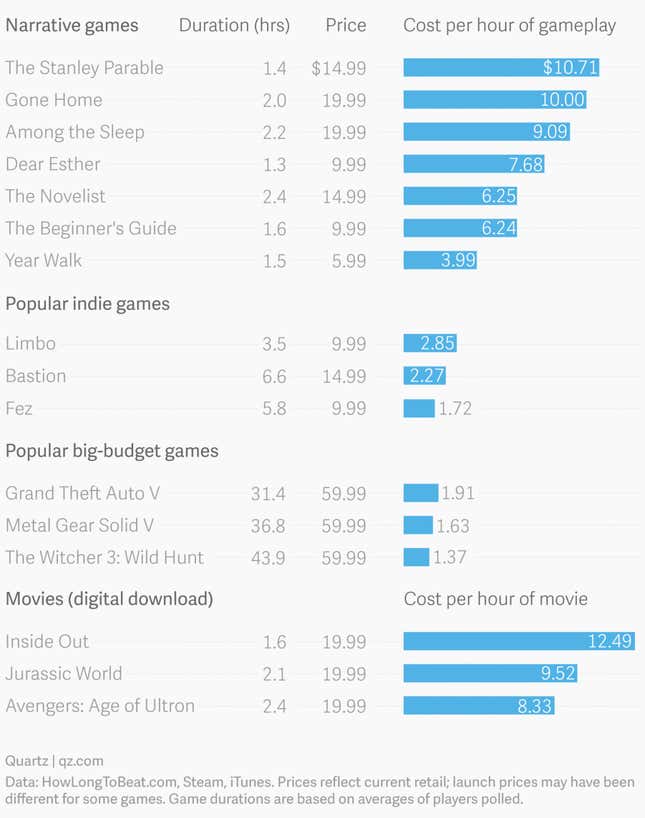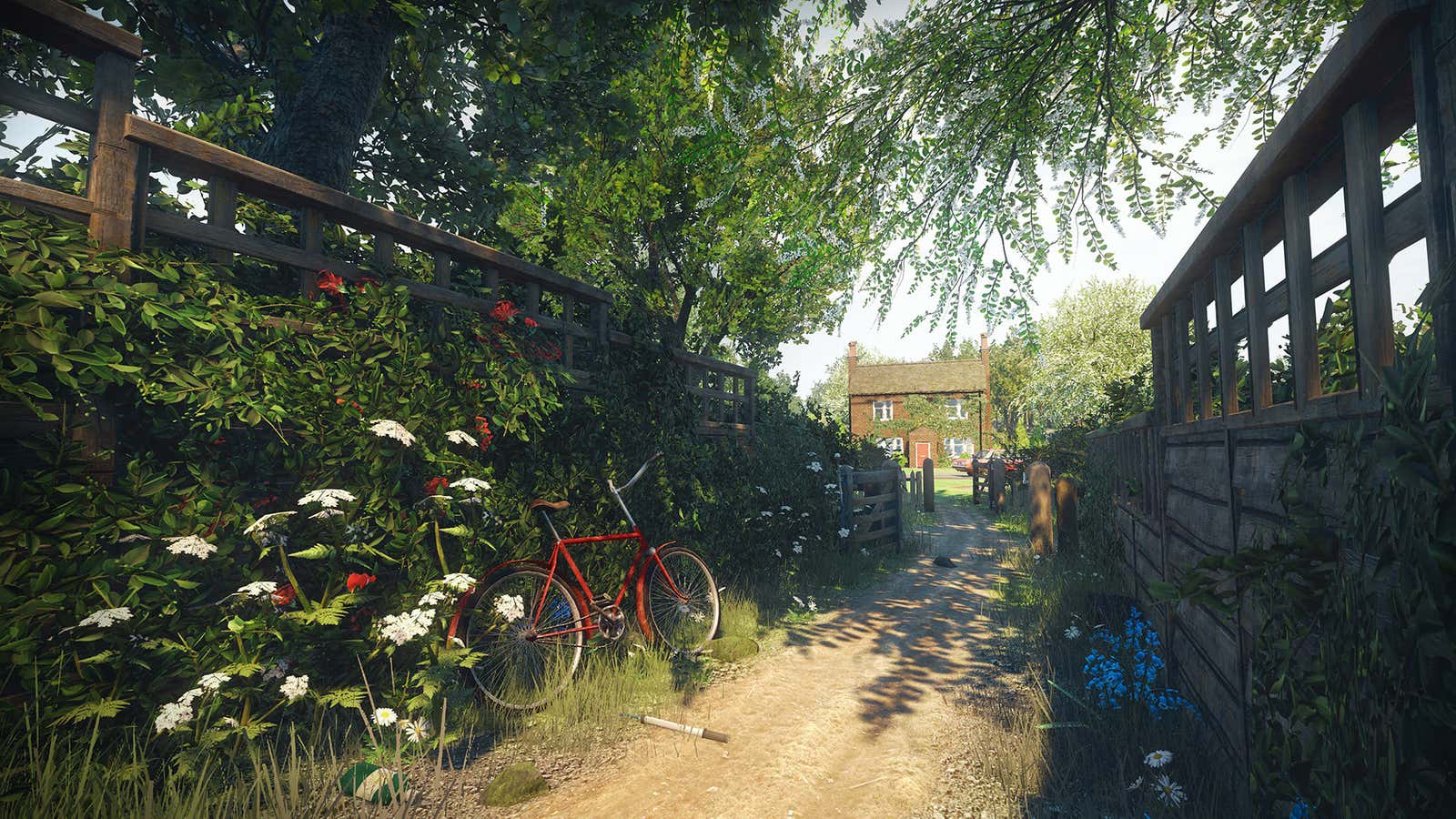Some of the biggest video game blockbusters of 2015 were Fallout 4, Metal Gear Solid 5, and The Witcher 3—all of which were priced at about $60 upon release. These are the kinds of games that require strategic thinking, feature intricate gameplay mechanics, and can last for more than 40 hours.
But the game with the most nominations in the British Academy Film Awards (BAFTA), announced today (March 10), is a $20 game that lasts about five hours and includes no physical puzzles or epic battles. It’s called Everybody’s Gone to the Rapture, currently only available for the Sony Playstation 4. It’s nominated for many of the top awards at BAFTA, including Best Game and Artistic Achievement.
In Everybody’s Gone to the Rapture, you mostly just walk around. You can press a button to open doors and turn radios on and off, but otherwise it’s pretty much just the walking. Well, that’s not entirely true—you can launch into a light jog if you hold a certain button down long enough. But there’s no jumping and there are no weapons.
The game is part of a nascent genre that puts story above gameplay. It’s like a movie you can explore on your own, with a plot you have to piece together yourself.
Here’s an excerpt from Sony’s description of the game:
Over the course of the game, the player slowly pieces together the fate of the valley from the fragmentary memories of the people who made it their home. By finding and interacting with the traces of these lost lives, the player gradually learns about the stories and relationships of the inhabitants – how they lived, and how they died. All this is accomplished through revolutionary environmental storytelling – what you see and hear in Rapture is just as important as what you do.
Games in this genre are typically called “narrative games” or “walking simulators.” The latter apparently began as a complaint about the missing gameplay, but seems to have stuck. Even one of the creators of Rapture, Dan Pinchbeck, called it a “walking sim” in an email to Quartz. Pinchbeck said that in addition to the game’s critical acclaim, it’s also sold well, though he couldn’t release specific sales numbers.
“It’s not just a critics-and-hipsters thing,” he said. “It’s definitely landed in the same camp as [Dear] Esther, Gone Home, Stanley [Parable,] etc, as a popular as well as critical hit, which is nice.”
That could mean Rapture is in the realm of about a million units sold, if not more. Dear Esther was also made by Pinchbeck’s game development studio, The Chinese Room. It was one of the first games in the narrative genre, and sold at least 750,000 copies. The Stanley Parable, which was a sort of narrative dark comedy, sold over a million.
Last year, we looked at the cost of these sorts of games as compared to their bigger-budget competitors, as well as newly released movies. We found that although they cost more per hour of entertainment than the longer video games, they cost about the same per hour as a new movie on DVD or digital download.

Pinchbeck said that although The Chinese Room is moving away from narrative games for now, he believes the genre is flourishing.
“It seems to be healthy. Personally, we’re moving away, think we’ve done walking sims for a while,” he said. “But from where I’m standing, it’s got to be seen as pretty darn healthy.”
The BAFTA winners will be announced April 7. Here’s a full list of nominations for Everybody’s Gone to the Rapture:
- Best Game
- Artistic Achievement
- Audio Achievement
- British Game
- Game Innovation
- Music
- Original Property
- Story
- Voice acting performance: Merle Dandridge (Kate Collins)
- Voice acting performance: Oliver Dimsdale (Stephen Appleton)
